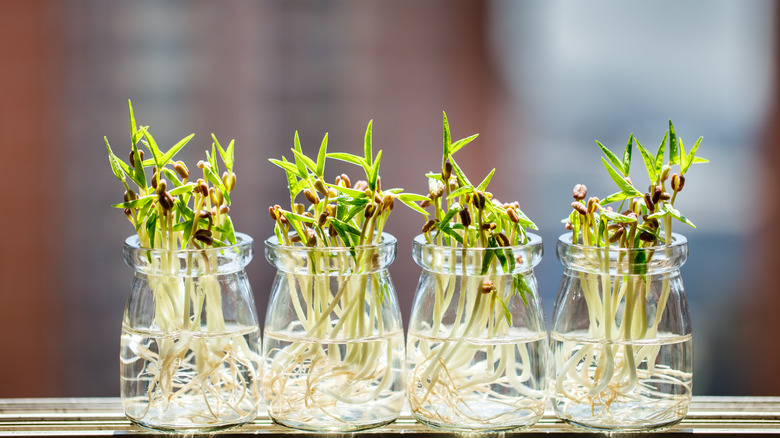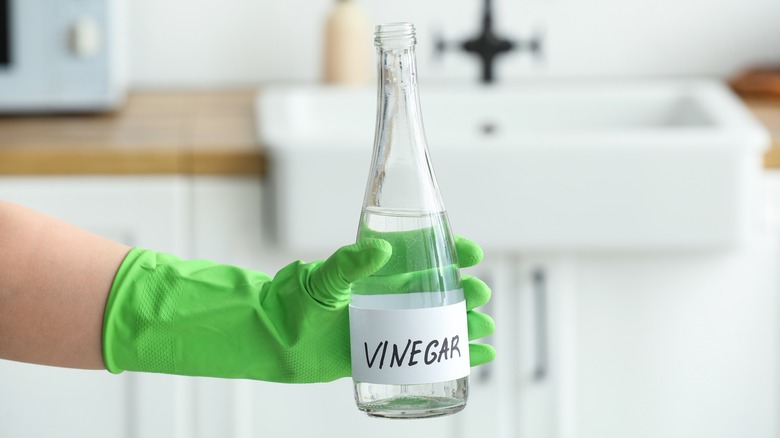Vinegar Is The Secret To Getting Plants To Germinate
As any seasoned gardener knows, cultivating a lush and vibrant garden begins with the tiniest of miracles — seed germination. The anxious wait for seeds to germinate is a rite of passage we all must endure. Today, we're going to talk about an exciting technique that can supercharge the seed germination process by using an ingredient you already have in your kitchen: vinegar. So, if you're looking for ways to ensure successful germination and perhaps even speed it up, this handy vinegar hack can help.
But to understand the pivotal role of vinegar in seed germination, we need to examine the process first. During germination, a seed, triggered by the right environmental conditions, awakens from its dormant state and begins to sprout. This marks the beginning of a plant's life, and healthy germination is the foundation for a robust, thriving garden. During this phase, the plant establishes its root system and prepares to embark on its journey toward maturity, bearing fruits, flowers, or foliage. Now, let's talk about vinegar and how it can assist in this crucial process. Its role as an effective germination enhancer is all thanks to the unique properties of acetic acid, the key component in vinegar. But how, exactly, does it figure in seed germination?
How vinegar helps with seed germination
The science behind vinegar's role in germination is straightforward. When vinegar is used as a priming agent for seed germination, the acetic acid it contains helps break down the hard seed coat, effectively breaking the period of seed dormancy. When a seed is dormant, its outer layer acts as a protective barrier, preventing water and oxygen from reaching the embryo. By soaking seeds in a vinegar solution, you're essentially providing a gentle chemical abrasion to the seed coat, allowing moisture and oxygen to penetrate the seeds more easily, and enhancing their rate of germination. To make your own seed-germinating solution, mix a teaspoon of white vinegar with one cup of water. Soak the seeds in the solution for 6 to 12 hours. Be sure you don't exceed this timeframe, as prolonged exposure to vinegar can harm some seeds. Plant the seeds as usual and provide the necessary care, ensuring they receive adequate water, sunlight, and nutrients for optimum germination.
While vinegar can be a game-changer in seed germination, you should exercise caution. Not all seeds respond positively to vinegar, so do some research on the specific plant varieties you want to grow. Additionally, avoid using vinegar with high concentrations of acetic acid, as doing so can harm your seeds rather than help them. With the science behind vinegar-enhanced germination in your gardening toolkit, you're now equipped to kickstart your growing season with a little extra boost.

